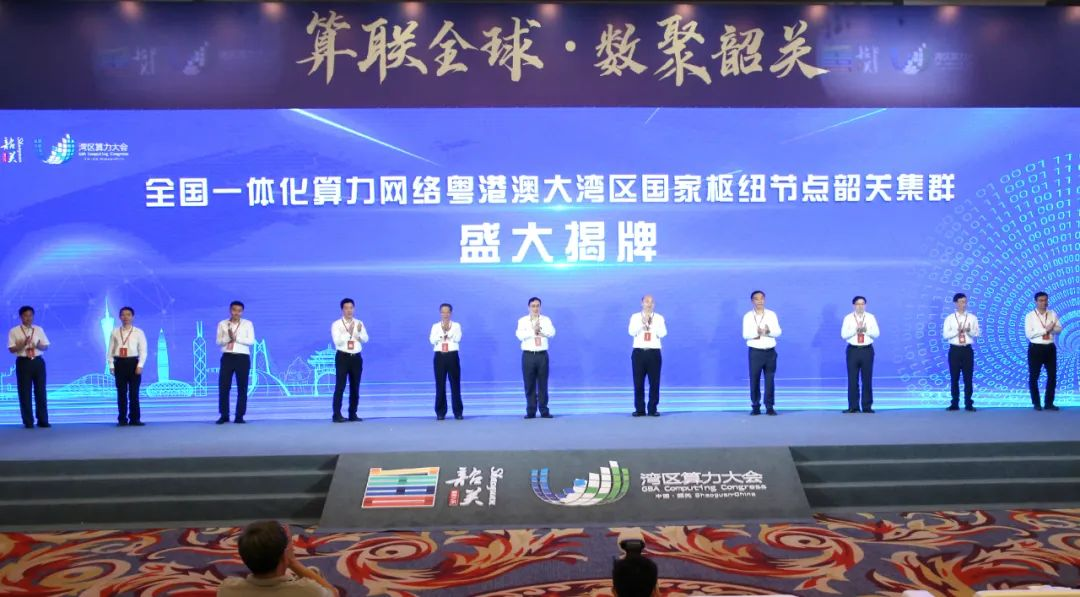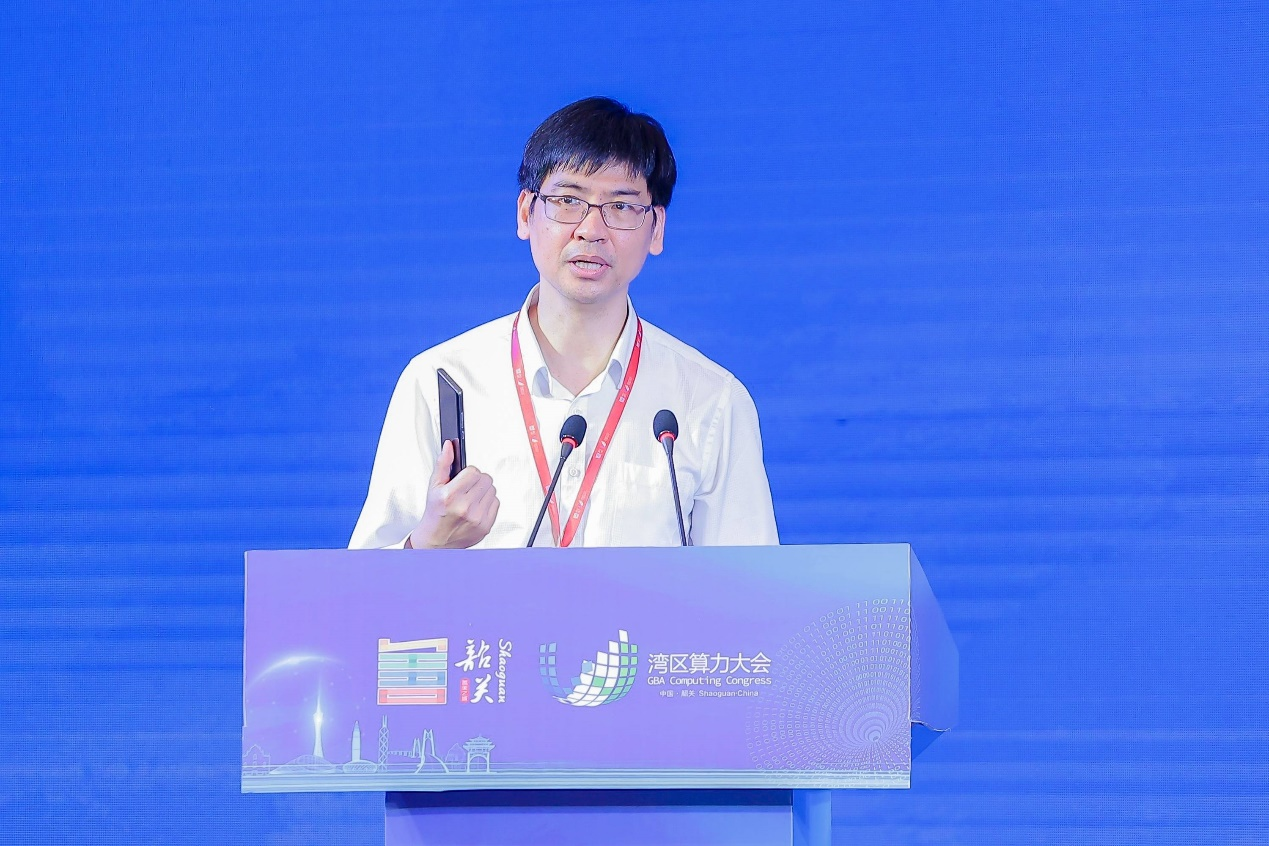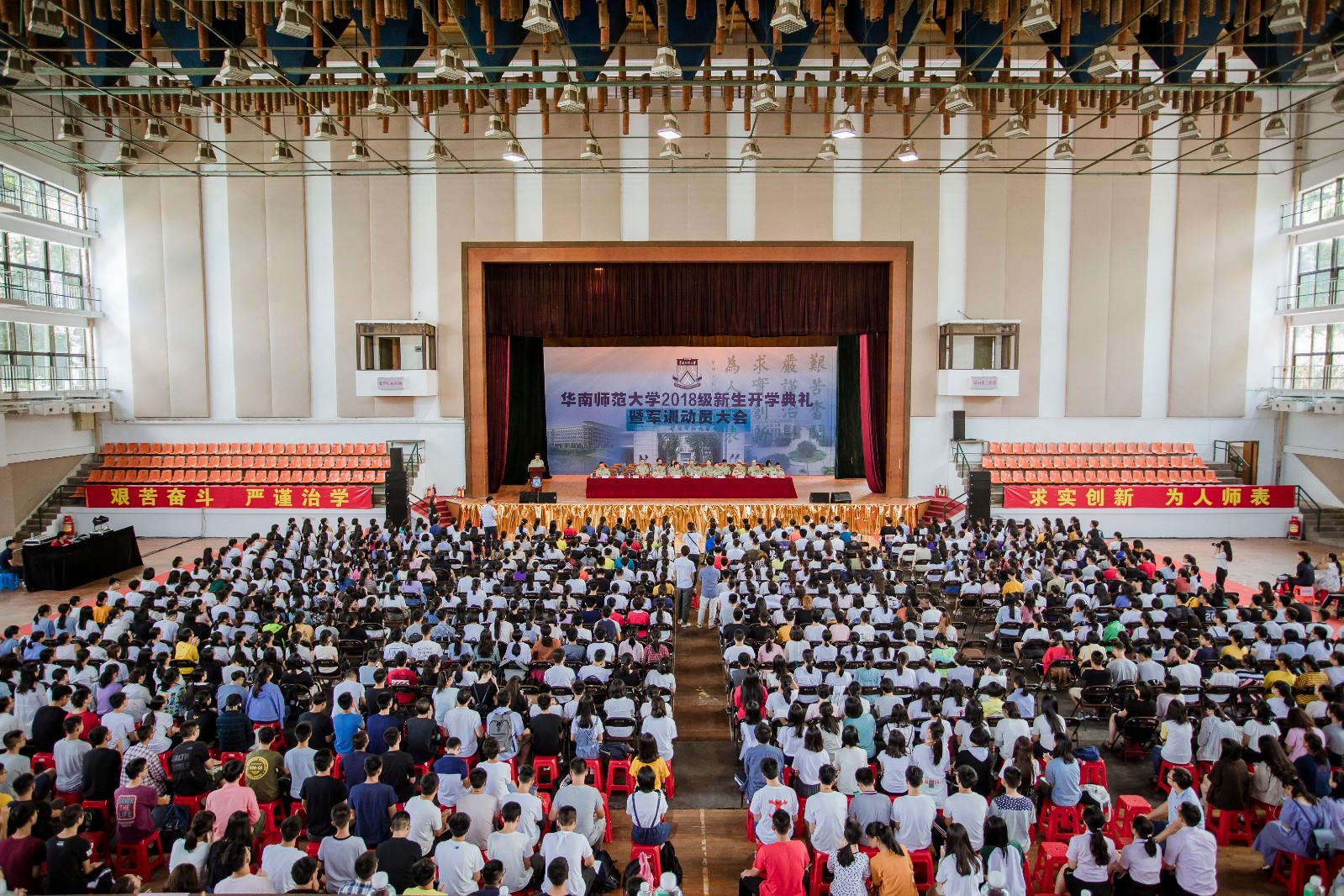
Likes
Two reports of SCNU on the national integrated computing system were launched in the first “East Data West Computing” Guangdong-Hong Kong-Macao Greater Bay Area Computing Congress held in Shaoguan, in Guangdong province on May 29.
Professor Zhao Gansen from the School of Computer Science of SCNU released the reports at the meeting after he made the keynote speech called "Building an Efficient Computing Center for the Industrial Transformation and Upgrading of the Greater Bay Area".
According to his introduction, the reports are conducted by the Intellectual Property Information Service Center of SCNU, with one studying the capacity for scientific and technological innovation in the relevant areas of the integrated national computing power network, while the other analyzing the capacity for basic research in the relevant areas of the integrated national computing power network.

Professor Zhao Gansen gives a keynote speech on the Congress.
Responding to the national strategy "East Data West Computing", the reports comprehensively research and quantitatively analyze the computing force of related fields relying on the big data. Besides, they provide quantitative, objective and multidimensional analysis for the digital construction of Guangdong and development of the computing power industry in the Greater Bay Area, thus supporting relevant departments, enterprises and industries to find right directions and expand their opportunities and advantages.
Organized by the People's Government of Guangdong Province and hosted by the Shaoguan Municipal People's Government and five other provincial and municipal departments, the congress is the first one to be held in the country under the theme of east-data-west-computing project, and it was attended by vice governor of Guangdong Wang Xi, Secretary of the Shaoguan Municipal Party Committee Wang Ruijun and other officials from related departments at the provincial and municipal level, as well as leaders and experts in relevant fields. The written reports were distributed to participants on the site, while the electronic full texts are available via the Wechat account of the SCNU library.

Scan QR codes for the full texts of the reports released by the Intellectual Property Information Service Center of SCNU.
According to Xinhua News, China approved projects to build eight national computing hubs and approved plans on 10 national-data center clusters on February 17, 2022, indicating the completion of the overall layout for the national integrated big-data center system and the official start of the "Eastern Data Western Calculation" project. The eight national computing hubs will be built in the Beijing-Tianjin-Hebei region, the Yangtze River Delta, the Guangdong-Hong Kong-Macao Greater Bay Area, the Chengdu-Chongqing economic circle, north China’s Inner Mongolia Autonomous Region, southwest China’s Guizhou Province, northwest China’s Gansu Province and Ningxia Hui Autonomous Region.
As one of the national computing hubs, the Guangdong-Hong Kong-Macao Greater Bay Area will see the establishment of data centers at different levels, including a Shaoguan data center cluster, data centers in cities and marginal areas. The Shaoguan data center cluster is expected to be built to a scale of 500,000 standard racks and 5 million servers by 2025. It’s said that the intended investment in the national hub of Guangdong-Hong Kong-Macao Greater Bay Area has exceeded 200 billion yuan. On the day of the conference, 30 major projects were settled in GBA computing hubs, including those signed with Inspur, Huawei, China Energy Engineering Group, Tencent, Kuaishou and China Telecom.
Wang Xi pointed out that Guangdong constructs around computing power network data center, focuses on five key subsystems, systematically plans to promote the intensification and innovation of computing power, algorithm and data application resources as a service, and actively creates a big data development highland with high-quality computing power supply and efficient data flowing. Guangdong will use the piling-on effect of policies, increase the guarantee of resource, strive to build a superior computing power industry ecosystem, and boost the development of the whole industrial chain of data centers.
Wang Ruijun said that efforts should be made to speed up the construction of the Shaoguan data center cluster, further develop a batch of big data industry key projects, give full play to the maximum value of data, release core productivity of computing power, build data resources’ and data industries’ gathering centers which cover southern China, service for the nation and connect the world and set the standard of Guangdong digital economy leading the high-quality development.
The Intellectual Property Information Service Center of SCNU was established in April 2021. Since then, it has been taking the initiative in providing service for the school’s scientific and technological innovation work, compiling special analysis reports, carrying out training program and competitions related to sci-tech and innovation, combing the school’s work and achievements about intellectual property and presenting special exhibitions, fostering the close cooperation with the local government and industry associations, supporting the alignment scientific and technological achievements and the transformation of innovative technology work, etc.
Source: SCNU News Center
Translated by Wang Ting, Zou Shan
Proofread by Edwin Baak
Edited by Li Jianru
What to read next:










